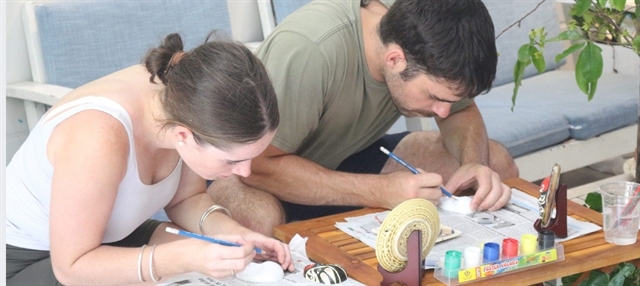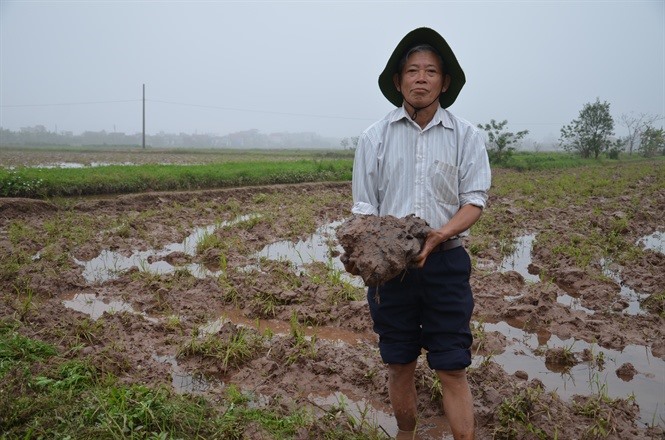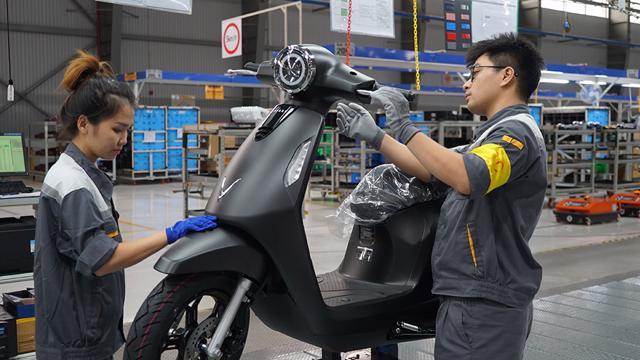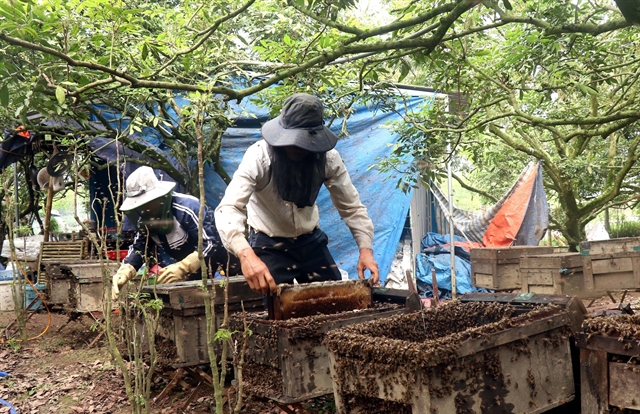 Society
Society

Phạm Quốc Bảo’s little house faces the Hậu fields.
 |
| Bảo said the soil is now much worse than it was 10 years ago because of the overuse of pesticides. — Photo nongnghiep.vn |
NAM ĐỊNH — Phạm Quốc Bảo’s little house faces the Hậu fields.
Bảo, a resident of Villlage 4 in Giao Tiến Commune, Giao Thuỷ District in the northern province of Nam Định, was once proud of the location. His house embraced the winds and sun and the smell of the fields all year round. When water was pumped into the field, he could hear the frogs’ ribbit all through the night.
But it’s not like that anymore.
Now all he can smell is the intense odor from pesticides used all over the field that once brought such pleasant feelings.
Bảo said that during one rice season, farmers would use pesticides nine times – one time for snails, one time for invasive plants, one time for the white-backed planthopper, two times for the brown planthopper and three or four times for rice leaf folder.
“Many farmers are seduced by the name ‘plant protection substances’, but they don’t know that most of them are harmful,” Bảo said.
When farmers in his village started spraying the pesticides, Bảo said he dared not even run water from the field to his fish pond in the garden, for he was afraid the fish would be contaminated with pesticides.
“The water that used to bring the vitality for the fields, for the village, now has turned into a deadly thing that people want to shun,” he said.
“No one swims anymore in the rivers in the region – it’s no wonder why many boys who were born here don’t know how to swim!” Bảo said.
When pesticide is sprayed, fish and shrimp would rush to the surface of the water in the fields like they were on fire. Frogs jumped up and down, he said.
Phạm Thị Cậy, another resident in Village 4, had herself experienced the toxic effects of pesticides used in the fields. She didn’t use pesticide on her rice field, but the next two fields were sprayed. On a hot summer afternoon, the owners of the two other fields pumped water into their fields, and the water ran over to Cậy’s field where she was working. She was poisoned by the odor of the pesticide that was used for snails, started vomiting and felt dizzy.
Cậy was then taken to the hospital for emergency treatment.
“In the past we never used pesticides on our home garden, only on the field. Now if we don’t use the chemicals, insects would spread over from the fields to the gardens in no time,” Cậy said.
“And even though people use such harmful substances on the fields, plant diseases are still widespread,” she said.
“The insects have got used to the pesticides, somehow.”
Bảo said the soil has got worse due to the chemical substances, too.
“When I was 16 years old, the soil was very different. It was porous and fertile. Now even if we take care of the soil properly, plowing the soil properly, it’s still hard and not as soft as before,” Bảo said.
Cao Xuân Tiến, chairman of Giao Tiến Commune’s People’s Committee, said most farmers in the commune now didn’t want to farm anymore.
“Many of them just want to harvest quickly and don’t think much about long term harm to the field, using as many pesticides as they think necessary. People would use about 2.5 tonnes of pesticides on the 450 hectares of field in the commune each year,” he said.
Same in other places
A recent analysis conducted by the Science, Technology and Environment Centre under the Việt Nam Co-operation Alliance revealed that the surplus amount of plant protective chemicals in five communes planting flowers in Hà Nội ranged from 1.2 to 7 times.
For instance, for each hectare of phật thủ (Buddha’s hand), farmers would spray 6,000 litres of pesticide each month, according to Tạ Văn Phúc, chairman of the Buddha’s hand trade association of Đắc Sở Commune, Hoài Đức District, Hà Nội.
When spraying the pesticide, farmers in the region wouldn’t let their families come near the crop plantation.
Nguyễn Duy Hồng, head of the Plant Protection Department of Hà Nội, said it was hard to manage the use of plant protective substances among farmers. There were no guidelines on punishment for the overuse of pesticides or insecticides on flowers and ornamental trees, he said. — VNS









